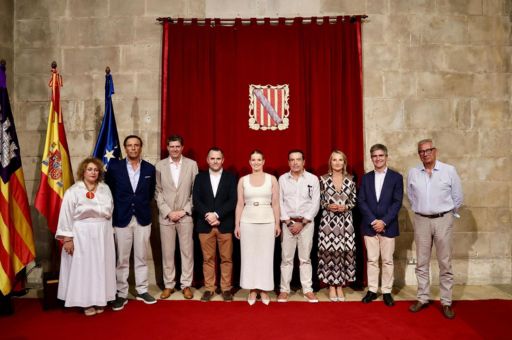Prohens: “With these agreements, the result of dialogue, negotiation, and consensus, we are taking another step forward in the hospitality agreement, benefiting all tourism workers in the Balearic Islands.”
The President of the Government of the Balearic Islands, Margalida Prohens, has signed the tripartite agreements aimed at improving working conditions in the hospitality sector of the Balearic Islands. The agreements cover work–life balance, productivity improvement, absenteeism control, and workplace well-being in the hospitality industry.
TDB keeps you informed. Follow us on: Facebook, Twitter and Instagram
The Government Signs Tripartite Agreements to Improve Working Conditions in the Hospitality Sector of the Balearic Islands
The signing ceremony was attended by Javier Vich, President of the Mallorca Hotel Business Federation; José García, Secretary General of the UGT Services, Mobility, and Consumer Federation of the Balearic Islands; Juan Miguel Ferrer, President of CAEB Restauración; Miguel Pérez-Marsá, President of the Leisure and Entertainment Association (ABONE); Antoni Sansaloni, President of the Bars and Restaurants Association (PIME Menorca); and Miquel Tur, President of the Bars, Restaurants, and Cafeterias Association of Ibiza and Formentera (CAEB). Also present were Manuel Sendino, Manager of the Hotel Federation of Ibiza and Formentera, and Azucena Jiménez, Manager of the Menorca Hotel Association (ASHOME).
Representing the Government, the event was attended by the Minister of Labour, Public Function and Social Dialogue, Catalina Cabrer, and the Minister of Tourism, Culture and Sports, Jaume Bauzá.
President Prohens emphasised that these agreements, achieved through dialogue, negotiation, and consensus, “take the hospitality agreement one step further, to the benefit of all tourism workers in the Balearic Islands.”
Work-life balance and absenteeism control
The first agreement involves the main economic sector in the development of the first Balearic work-life balance law, pioneering at the national level, aimed at improving work-life balance for 180,000 workers. It also addresses absenteeism by distinguishing between justified and unjustified absences, through social dialogue with employer organisations and unions.
The Government will finance work-life balance consultancy services to advise and guide companies on how to make use of the tools provided by this law. It will also fund absenteeism control consultancies to promote strategies, awareness campaigns, and workplace well-being measures to reduce absenteeism rates.
Occupational health
The second agreement focuses on occupational health, extending Government support for measuring the workloads of hotel room attendants until 2028. This extension responds to requests from hotel federations and UGT, given the complexity of such assessments.
Training and professional excellence
The third agreement addresses training and excellence. Employer associations and UGT will work together with the Tourism Strategy Agency of the Balearic Islands (AETIB) to develop a Professional Training and Excellence Plan, including mechanisms to encourage workforce training and upskilling.
Conclusion
These tripartite agreements aim to enhance both productivity and the quality of the tourism offer, while also prioritising the well-being of hospitality workers.
President Prohens expressed gratitude to the employer organisations and unions for their collaboration, calling the agreements “a historic milestone that rounds out the hospitality agreement and seeks to ensure that the success of tourism translates into well-being for everyone.”
